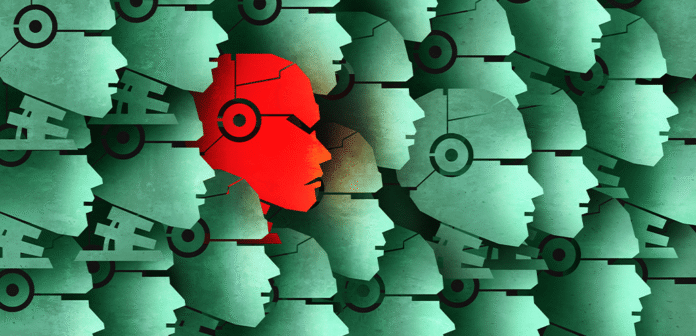AI is everywhere—chatbots, smart room assistants and facial recognition check-ins. It promises speed, efficiency and data-driven personalization. But with great power comes great responsibility, especially in the hospitality world, where guest experience is everything. So how do we embrace AI while staying human, ethical and secure?
Here’s a practical guide for hoteliers and event professionals to navigate the growing influence of AI—with both eyes open.
1. AI Isn’t Always Fair or Friendly
AI systems can inherit human bias, sometimes with serious consequences. Studies show voice assistants misidentify 35% of words spoken by black users compared to just 19% for white users, hiring algorithms have mirrored gender biases found in human recruiters and self-driving cars struggled more to detect people with darker skin!
The point? If you’re using AI for guest recognition, customer feedback or hiring, know that it may unintentionally favor or exclude certain groups. Always ask: Who trained this AI? On what data?
2. Some Guests Love AI. Others Just Want a Person.
AI works well—until it doesn’t. For example, Starbucks uses an AI assistant to speed up service and reduce lines; Taco Bell is rolling out voice AI in hundreds of drive-throughs for faster orders.
On the other side of this, McDonald’s and Wendy’s both faced backlash for glitchy drive-through bots that got orders wrong or couldn’t handle simple customer requests. They had to pull the plug.
Takeaway? Match your technology to your audience. Some guests enjoy AI-powered efficiency. Others still want that personal touch, and perhaps they will pay extra for that.
3. Privacy and Data Risks Are Real
AI often requires huge amounts of personal data, from names and payment info to facial scans and travel history. Here’s what can go wrong:
- Over-personalization can cross boundaries, like inferring religion or medical conditions without consent.
- Smart devices in rooms can be hacked, exposing guests to data theft—or worse.
- Unprotected APIs connecting AI tools to booking or loyalty systems can leak sensitive info.
- Facial recognition and voice tracking raise concerns over surveillance and guest discomfort.
Read More: Smart Tech: The Race to Data Security
Follow CitizenM Hotels’ lead. They store facial data locally, auto-delete it after checkout and require clear opt-in from guests.
4. Fake Reviews and Data Poisoning Are a Growing Threat
AI tools often rely on customer feedback and online data. But fake reviews can manipulate reputation and mislead business decisions and poor-quality or “poisoned” training data can lead AI to make flawed or biased choices.
If you’re using AI to track guest satisfaction or analyze reviews, make sure the sources are credible and the systems are well audited.
5. Internal Risks Can Be Just as Dangerous
Don’t overlook your own team or vendors.
A few dangers can occur if proper security measures aren’t taken: Weak data governance can result in data being stored too long or accessed by the wrong staff; third-party AI vendors may not follow the same security standards, putting your enterprise at risk; and cloud-based AI systems used across multi-location enterprises can create cross-location vulnerabilities.
Make sure you have clear access controls, vendor vetting and data policies.
6. AI Can Hurt Morale and Hospitality Culture
Hospitality and events are people businesses. When AI replaces human roles, staff may feel devalued and guests may notice. Receptionists, housekeepers and kitchen staff could see automation as a threat, and guests may feel uncomfortable or dehumanized when greeted by a machine.
Read More: Work Smart: The Team Culture Factor
Use AI to augment, not replace, your team. Let it handle routine tasks, so staff can focus on what truly matters: hospitality.
7. What If It All Goes Down?
AI systems are only as strong as their power and internet connection.
- A cyberattack, power outage or system bug could freeze operations.
- Staff may lose critical decision-making skills if they lean too heavily on automation.
Plan for downtime. Train your staff. Have manual backups. Don’t let technology become a single point of failure.
8. It’s Not Just About Tech, It’s About Ethics
The AI ecosystem relies on behind-the-scenes labor—often low-paid workers tagging violent or explicit content to train models. AI also consumes massive amounts of energy, raising sustainability concerns.
Before adding AI features, ask: Is this good for people? For the planet? For our enterprise?
Balance, Not Blind Faith
AI is here to stay, but it’s not magic. It needs to be managed, not worshipped.
- Use AI to enhance, not replace, the human touch.
- Be transparent with your guests and other stakeholders about what data you collect and why.
- Test technology before rolling it out.
- Prioritize ethics, privacy and security as much as performance.
The future of hospitality depends not just on how smart your tools are, but on how wisely you use them.
—
Carl Winston is founding director of Payne School of Hospitality and Tourism at San Diego State University.

